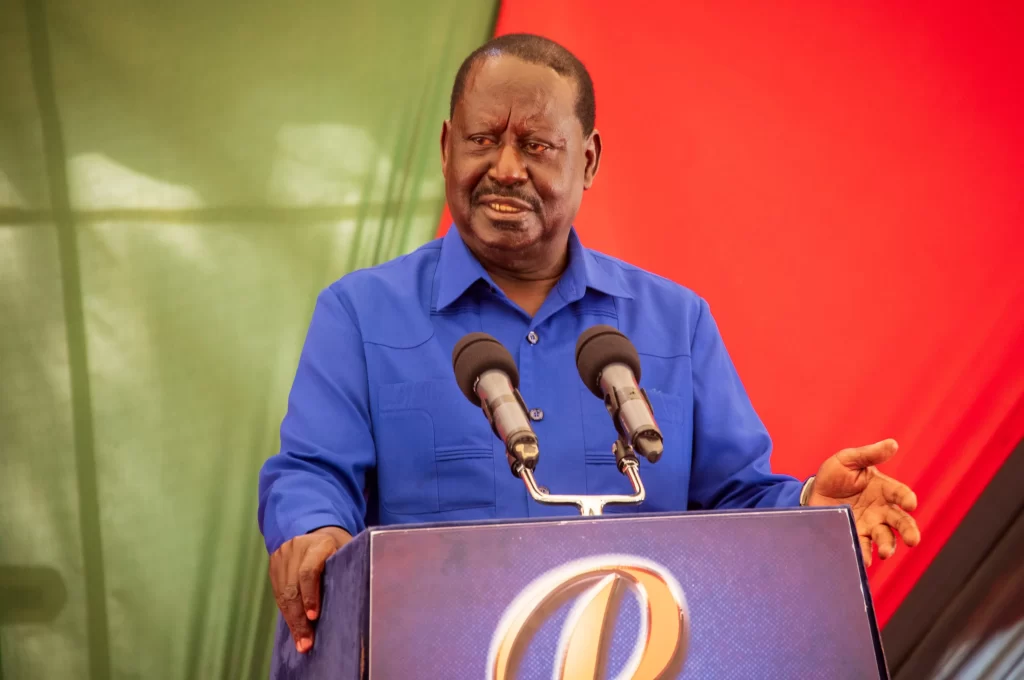
Azimio la Umoja – One Kenya Coalition Leader Raila Odinga .PHOTO | COURTESY..Source: X
In Summary:
1) Raila Odinga is seeking support across 55 member states for his bid to become the African Union (AU) Chairperson.
2) If elected, Odinga’s role would require him to navigate political neutrality, potentially impacting his involvement in Kenya’s politics.
Raila Odinga, former premier of Kenya, has announced his candidacy for the position of African Union (AU) Chairperson. He is actively lobbying support from the 55 member states.
His campaign is especially focused on consolidating the backing of the East African Community (EAC) nations, including Kenya, Uganda, Tanzania, Rwanda, Burundi, DR Congo, and South Sudan.
The announcement, made from Odinga’s residence in Karen, has stirred discussions about his political future in Kenya. If elected, Odinga would be required to serve until 2028, which could potentially remove him from Kenya’s political landscape during this period.
Keep Reading:
- Raila Odinga’s Potential Powers and Salary if Elected AU Chairperson
- Gachagua Warns Traders: Sell Your Dollars or Risk Losses as Shilling Strengthens
- Woman’s TikTok Posts Spark Speculation Over Relationship with Late Kelvin Kiptum
The AU Commission Chair holds significant responsibilities, including enforcing financial regulations, chairing commission meetings, and promoting the AU’s objectives. However, the role also demands political neutrality, as outlined in the code of conduct for AU Chairpersons.
According to the regulations, if Odinga assumes the AU Chair, he would be expected to refrain from active involvement in Kenyan politics and any other public office appointments. This could effectively prevent him from participating in the 2027 presidential race, as his term would extend until 2028.
Despite the limitations, Odinga is leveraging his continental networks and experience as the AU High Representative on Infrastructure Development in Africa to bolster his candidacy.
His bid for the AU Chair signals a potential shift in his political career, with implications both for Kenya and the broader African context.
